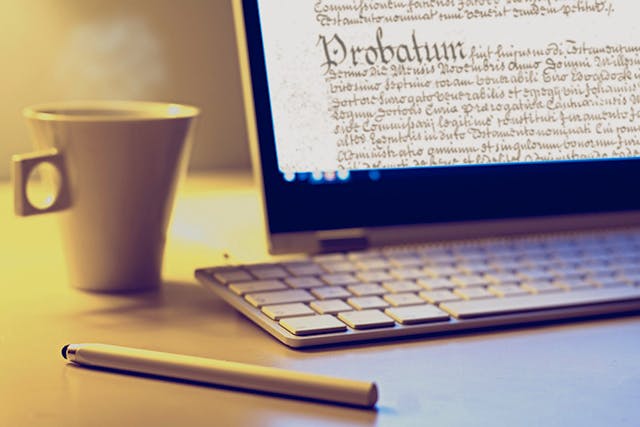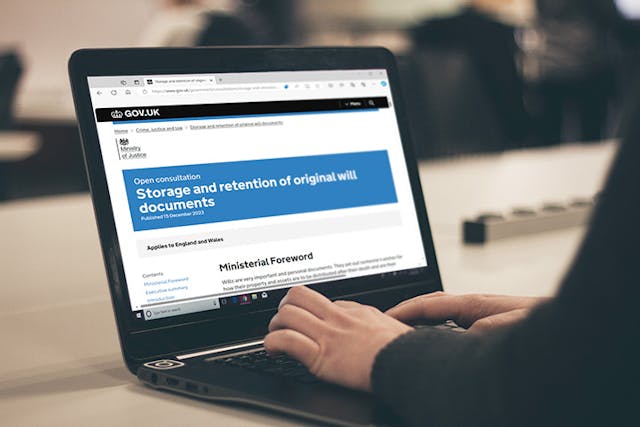
Society of Genealogists | Jan 11, 2024, 12:00 PM
Ministry of Justice Consultation on the Storage and Retention of Original Will Documents
On 15 December 2023, the UK government published a consultation paper on the ‘Storage and retention of original will documents’. The paper can be accessed online here.
On 15 December 2023, the UK government published a consultation paper on the ‘Storage and retention of original will documents’. The paper can be accessed online here. At the same time, the government issued a press release backed up by posts on social media under the headline claims ‘Easier access to historic wills under new government plans’ suggesting Genealogists, historians and amateur family archivists will be better able to access historic wills under proposals published on 15 December 2023.
The Society of Genealogists urges the Genealogy Community to read the paper and respond by the deadline of 23rd February 2024. You are welcome to quote our response or use it for guidance in formulating your own reply.
Helpful Links:
- View the paper here
- Email responses to: civil_justice_poli@justice.gov.uk or write to:
Will Storage consultation
Ministry of Justice
Postpoint 5.25
102 Petty France
London
SW1H 9AJ
Our Response
The Society created an initial response to the proposals (see here) and has now created a fuller response below, replying to each of the questions within the Ministry of Justice’s Consultation Paper.
Our response was created after listening to comments from our members and the wider genealogy community. We welcome further discussion on these points. Message us on Facebook, Twitter or email hello@sog.org.uk with your thoughts.
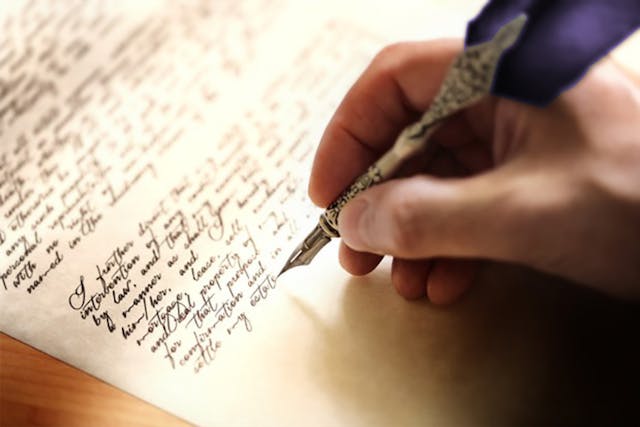
Question 1: Should the current law providing for the inspection of wills be preserved?
YES in that it makes provision for the documents to be open to inspection and for a register of finding aids made available to enable this.
Question 2: Are there any reforms you would suggest to the current law enabling wills to be inspected?
Provision should be made to allow for digitisation and for more convenient access to the documents.
Question 3: Are there any reasons why the High Court should store original paper will documents on a permanent basis, as opposed to just retaining a digitised copy of that material?
YES many – the documents themselves are the original, legal and most comprehensive record of our ancestors’ testaments. It goes against archival principles to destroy original source documents.
Digitisation is a great way of giving greater access to material, but it is not a full preservation strategy. Paper endures pretty well, digital technology changes. There are no guarantees that jpeg, PDF or any other format will be readable in even just a few decades. One only needs to look at the fate of CD ROMS to know that technology changes rapidly.
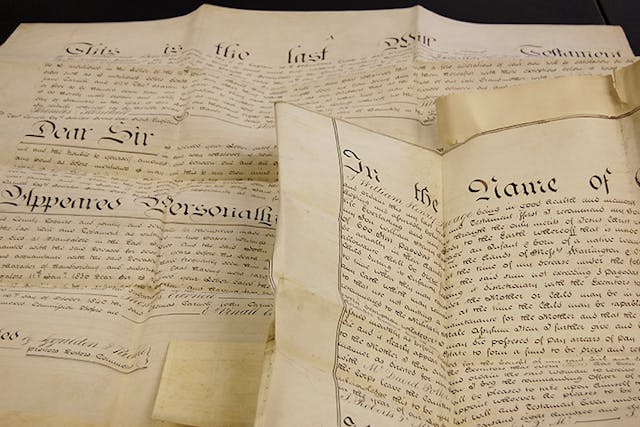
Digitisation is not the preservation or replacement of the original record. The documents themselves are of legal and historic interest and should be preserved as such. A surrogate electronic copy is just that and while conceding that preserving digital records is complex and costly, most archivists and historians would point out that a digital file is not the same as a physical item - they are not interchangeable. It has been suggested in your publicity video that "Once they are digitised, they last forever." NO THEY DO NOT. Digitisation does NOT guarantee the record is preserved for ever. There have been too many digital and archival projects that have foundered or disappeared or proved to be badly done to risk the destruction of the original documents.
Disposal of the originals presumes the digitisation of the original is always accurate and complete – something which is rarely achieved in any digital project. One should always have recourse to the original records as a last resort.
As a SoG member pointed out, “the idea that once digitised, archives will be 'preserved forever'. Is laughable. As I write, the British Library - its entire catalogue and digital deposit - has been hacked. Destroying a paper archive to save money in storage is completely irresponsible.”
Question 4: Do you agree that after a certain time original paper documents (from 1858 onwards) may be destroyed (other than for famous individuals)? Are there any alternatives, involving the public or private sector, you can suggest to their being destroyed?
NO. The Ministry of Justice would seem to have little understanding of the historic worth of, or interest in, probate documents for genealogical and historic research as well as their legal integrity. The National Archives and local archives make pre-1858 probate documents available for inspection, often by using surrogate microfilm and / or online digital copies. But these archives have not destroyed the original records in their care. These digital documents are a vital resource and the mainstay of many genealogy and historic websites, used on a daily basis. It is inconceivable that digital copies of post 1858 documents would not be at least as popularly received. However, just because the originals have been digitised does not mean the paper documents themselves are not worth preserving.
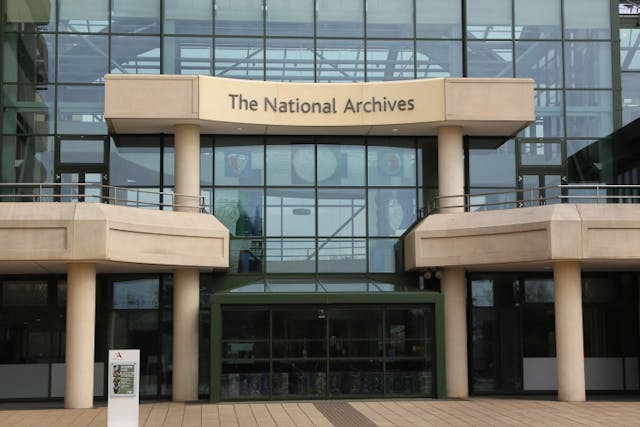
There should be the opportunity to examine the originals should a good case be made to do so – for example, in instances where a page has been accidentally omitted from the digital surrogates, or the digital copy becomes unavailable or unusable.
The original documents could and should be archived for preservation and occasional inspection; perhaps in a cheaper more distant repository. The National Archives and other repositories use deep store facilities for documents that are not used regularly, such as those that have been digitised. They have not destroyed the original documents.
Question 5: Do you agree that there is equivalence between paper and digital copies of wills so that the ECA 2000 can be used?
NO. There is no guarantee that the digital surrogate will not have omissions or will last as long as paper.
Question 6: Are there any other matters directly related to the retention of digital or paper wills that are not covered by the proposed exercise of the powers in the ECA 2000 that you consider are necessary?
“The ECA 2000 was intended, in part, to ensure a simple solution to amend legislation, including primary legislation, to allow legal requirements with respect to documents to be fulfilled by digital versions.”
Whilst the ECA 2000 may provide an opportunity to ensure the future more convenient use of the documents digitally, the Act does not suggest that digitisation is an archival process or concerns itself with archival or conservation principles.
Question 7: If the Government pursues preserving permanently only a digital copy of a will document, should it seek to reform the primary legislation by introducing a Bill or do so under the ECA 2000
NEITHER. The Government should not pursue the preservation of documents in a purely digital form. Digitisation is not preservation.
Question 8: If the Government moves to digital only copies of original will documents, what do you think the retention period for the original paper wills should be? Please give reasons and state what you believe the minimum retention period should be and whether you consider the Government’s suggestion of 25 years to be reasonable.
The example cited in the consultation paper of the various retention periods for documents held by the Ministry of Justice has come as a surprise to the genealogical community. For example, the consultation gives the example of Decree Nisi and Decree Absolute (official divorce records), and states that they are retained only for 100 years. The early full divorce files from 1837 to the 1930s have been deposited with the National Archives. It is our understanding that later divorce files are not retained by the court and hence the office records of the Decrees are the only formal record of a divorce having occurred at all. Currently, the costs of obtaining these historical records from the Court Service are prohibitively expensive, but it is inconceivable that the official Decrees should be destroyed at all, even after 100 years. They too should be retained and made more conveniently accessible.
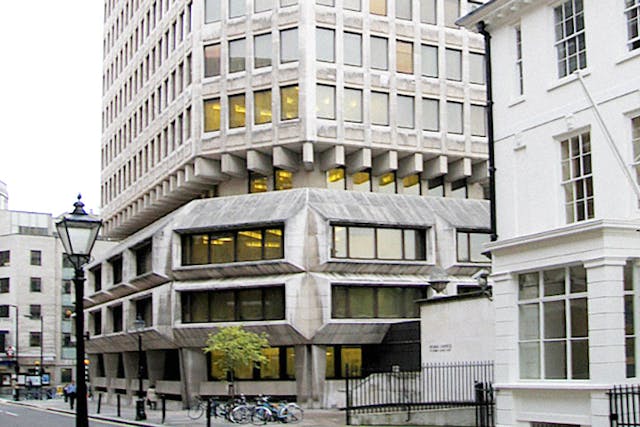
The consultation paper seems to think family historians have an emotional connection to the original documents which will wane with the passing of immediate generations connected to the proving of the will, and that this is sufficient reason the destroy the documents after 25 years. This is NOT a reasonable suggestion.
Ongoing generations will research their family probate records. The records going back to 1858 are of interest to later generations of genealogists and historians not just to immediate family members. Probate documents often supply some of the most personal and detailed genealogical and historical information, showing family relationships, personal comments and interactions, as well as information on the nature of the estate of the deceased.
The research process may well be served by more convenient access to the digital surrogate but, the fact remains that the documents themselves have an inherent historical worth and therefore should be retained indefinitely.
Some probate documents from some former local district probate registries, now defunct, have made their way into local record offices. Presumably, these archives recognise their historic worth. For example, the Cheshire Record Office now holds the probate records from 1858-1940 formerly held by the Chester local registry. It would be ironic should these records become the only remaining original documents.
The wills and ancillary documents noted in section 53 should indeed be kept permanently. After digitisation, original paper documents should be retained permanently as historic originals.
Question 9: Do you agree with the principle that wills of famous people should be preserved in the original paper form for historic interest?
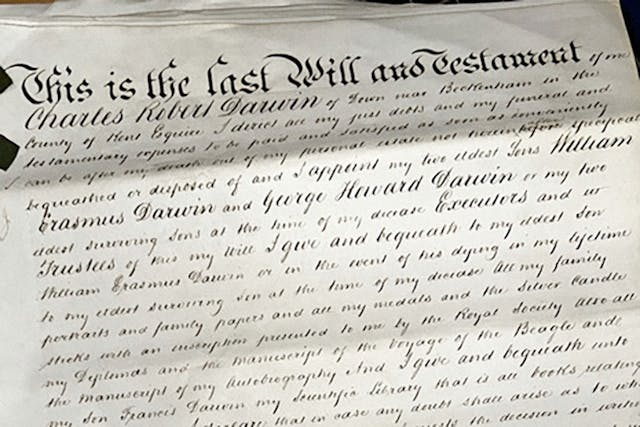
No. The consultation is working under the misapprehension that only the pre-1858 wills of famous persons have been preserved at the National Archives. While some wills relating to famous persons (such as Willliam Shakespeare) were removed and held separately from the main series of documents, all the original and office copies of probate documents (along with other ancillary probate records of the former Prerogative Court of Canterbury, which dealt with pre-1858 probate matters) have been retained and conserved, as well as made available in digital form. It is incorrect, if not outrageous, to suggest that the National Archives has set a precedent for the destruction of documents by merely retaining those relating to famous people. Similarly, local records offices have retained and preserved all the original pre-1858 probate records proved in local church courts, even though there are now many instances of digital surrogates being made available online. The original records have not been pre-selected or “cherry-picked” according to an arbitrary measure of worth.
The idea that only probate documents relating to famous people are of historic interest and hence worthy of preserving is preposterous and elitist. One of our members has suggested this is “vandalising our history. Destroying these original documents is highly irresponsible. And if digital is so good why differentiate between the famous (whose original wills you propose keeping) and everyone else? It’s like only the famous matter.”
One of our members has pointed out that a highly unsuccessful experiment was made to pre-select the preservation of some documents according to the status of the person concerned – “namely a collection of documents held by the National Archives relating to payments of Death Duties (IR 59, Board of Stamps: Legacy Duty Office and successors: Selected Death Duty Accounts). This collection is, to quote TNA's catalogue, “confined to the accounts of well-known persons and others prominent in national life”. In this case, a specimen sample of ‘other’ files was kept representing around 0.5% of the originals. The remainder were destroyed in the 1960s. It will come as no surprise to learn that the vast majority of the files in this series that have been selected for preservation over the years relate to rich, white males...”
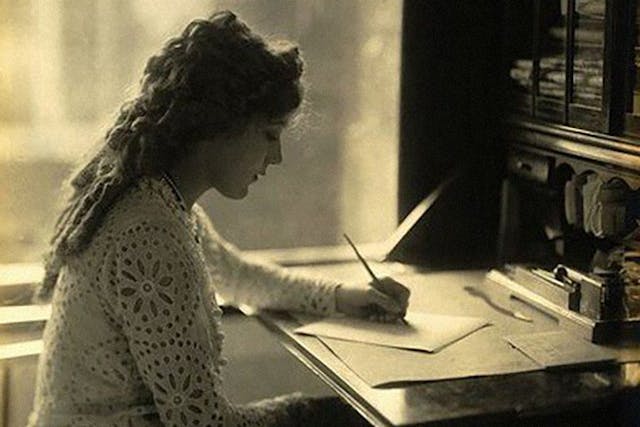
Question 10: Do you have any initial suggestions on the criteria which should be adopted for identifying famous/historic figures whose original paper will document should be preserved permanently
The Society of Genealogists firmly believes that the history of all people of all backgrounds are of equal importance and equally deserving of preservation. Hence there should be no criteria for the selection of famous/historic figures. For example, the estimation and reputation of Mary Jane Seacole the nurse and businesswoman changed considerably in the period after she died in 1881. In 1990, Seacole was (posthumously) awarded the Jamaican Order of Merit. In 2004, she was voted the greatest black Briton in a survey conducted in 2003 by the black heritage website Every Generation. Reputation and the definition of “famous” changes over time, as do views on who is and is not 'important'.
Please contact us for more information
Our Courses and Talks

New Courses, Talks & Walks
Discover new courses, talks, walks and visits each month. Delivered by experts in genealogy or history our educational opportunities cover a vast array of topics. From techy tools to history to genealogical research tips. Check out this month's offering (and beyond) here.
Calendar View
Know you have a quieter month ahead and want to plan in some learning time? Scroll through our calendar to discover our vast array of courses, talks, walks and visits. From 12 week evening courses, to lunchtime chats. There's something for everyone.
Free Events for Members
We regularly hold events focusing on our collections, alongside members' social sessions, and updates. Discover upcoming 'free for members' events, and find your genealogy community!
Join us
As a member, you can make the most of our resources, access our experts, and find a welcoming community of people interested in family history and genealogy.
We all have roots. Let’s find them together.
